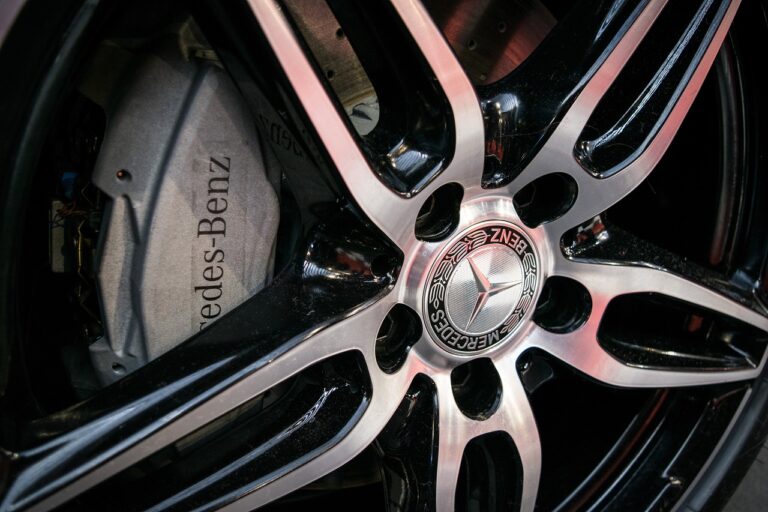Trends in Car Audio System Energy Efficiency
gold bet 7 sign up, radheexchange, 11xplay: As cars become more advanced and technology-driven, car audio systems have also seen significant improvements over the years. One of the key areas of focus in the automotive industry is energy efficiency, and this trend has been making its way into car audio systems as well. Manufacturers are constantly looking for ways to make car audio systems more energy-efficient without compromising on sound quality. In this article, we will explore some of the latest trends in car audio system energy efficiency and how they are shaping the future of in-car entertainment.
Energy-Efficient Amplifiers
One of the key components of a car audio system is the amplifier, which boosts the audio signal to drive the speakers. Traditionally, amplifiers have been known to consume a significant amount of power, leading to inefficiencies in the system. However, recent advancements in amplifier technology have led to the development of energy-efficient amplifiers that are capable of delivering high-quality sound while consuming less power. These amplifiers are designed to operate more efficiently, reducing power consumption and heat generation without compromising on sound performance.
Digital Signal Processing (DSP)
Digital Signal Processing (DSP) is another trend that is revolutionizing car audio systems. DSP technology allows for the manipulation of audio signals in the digital domain, providing greater control over sound quality and allowing for more efficient use of power. By using DSP technology, car audio systems can optimize the audio signal for the specific acoustics of the vehicle, resulting in better sound quality with reduced power consumption. Additionally, DSP technology allows for the implementation of advanced sound processing features such as equalization, time alignment, and noise cancellation, further enhancing the listening experience.
Efficient Speaker Design
Speaker design plays a crucial role in the overall energy efficiency of a car audio system. Traditional speakers are known to be power-hungry, requiring more power to produce louder sound. However, recent advancements in speaker design have led to the development of more efficient speakers that are capable of delivering high-quality sound with lower power consumption. These speakers are designed to be more responsive and energy-efficient, allowing for better sound performance while consuming less power. By using efficient speaker designs, car audio systems can achieve optimal sound quality without draining the vehicle’s battery.
LED Lighting and Display
In addition to the audio components, the lighting and display elements of a car audio system also play a role in energy efficiency. Traditional incandescent bulbs used for lighting consume a significant amount of power, leading to energy wastage. However, modern car audio systems are incorporating LED lighting and displays, which are more energy-efficient and long-lasting. LED lighting not only consumes less power but also provides brighter and more vibrant colors, enhancing the overall aesthetics of the system. By utilizing LED technology, car audio systems can reduce power consumption, improve visibility, and create a more eco-friendly in-car entertainment experience.
Integration with Vehicle Power Management Systems
Another trend in car audio system energy efficiency is the integration with the vehicle’s power management systems. Modern vehicles are equipped with advanced power management systems that regulate the flow of power to different components to optimize energy usage. By integrating car audio systems with these power management systems, manufacturers can ensure that the audio system operates efficiently without draining the vehicle’s battery. This integration allows for better coordination between the audio system and the vehicle’s power supply, ensuring that power is used wisely and efficiently.
Wireless Connectivity
Wireless connectivity is becoming increasingly popular in car audio systems, allowing for seamless integration with smartphones, tablets, and other portable devices. By incorporating wireless connectivity, car audio systems can reduce the need for wired connections, which can lead to energy wastage. Wireless technology allows for the transmission of audio signals without the use of physical cables, resulting in a more streamlined and energy-efficient system. Additionally, wireless connectivity enables users to control the audio system remotely, reducing the need to fiddle with buttons and knobs while driving. By embracing wireless technology, car audio systems can achieve greater energy efficiency and enhance the overall user experience.
FAQs
Q: Are energy-efficient car audio systems more expensive than traditional systems?
A: While energy-efficient car audio systems may have a slightly higher upfront cost, they can lead to long-term savings in terms of reduced power consumption and improved battery life. Additionally, the advancements in technology have made energy-efficient components more affordable, making them a viable option for consumers.
Q: Will energy-efficient car audio systems compromise on sound quality?
A: Not necessarily. Energy-efficient car audio systems are designed to deliver high-quality sound while consuming less power. Manufacturers are continuously improving the efficiency of components such as amplifiers, speakers, and signal processors to ensure that sound quality is not compromised. By choosing reputable brands and quality components, consumers can enjoy the benefits of energy efficiency without sacrificing audio performance.
Q: How can I make my existing car audio system more energy-efficient?
A: There are several ways to improve the energy efficiency of your existing car audio system. You can start by upgrading to energy-efficient components such as amplifiers, speakers, and LED lighting. Additionally, you can optimize the audio settings using digital signal processing technology to minimize power consumption. Regular maintenance and proper installation can also contribute to the overall energy efficiency of your car audio system.
In conclusion, energy efficiency is a growing trend in car audio systems, with manufacturers focusing on innovative technologies to reduce power consumption and improve performance. By incorporating energy-efficient amplifiers, digital signal processing, efficient speaker designs, LED lighting, wireless connectivity, and integration with power management systems, car audio systems can achieve optimal energy efficiency without compromising on sound quality. As technology continues to evolve, we can expect to see even more energy-efficient solutions in the future, making in-car entertainment more sustainable and enjoyable for consumers.







